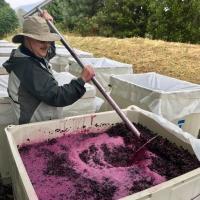-
Welcome to the eG Forums, a service of the eGullet Society for Culinary Arts & Letters. The Society is a 501(c)3 not-for-profit organization dedicated to the advancement of the culinary arts. These advertising-free forums are provided free of charge through donations from Society members. Anyone may read the forums, but to post you must create a free account.
What's wrong with "top" lists?
-
Similar Content
-
What a mug! 1 2
By Alex,
- 27 replies
- 2,479 views
-
- 335 replies
- 153,368 views
-
Top Chef 2025
By gfweb,
- 15 replies
- 7,058 views
-
- 492 replies
- 133,492 views
-
- 4 replies
- 1,639 views
-
-
Recently Browsing 0 members
- No registered users viewing this page.




Recommended Posts